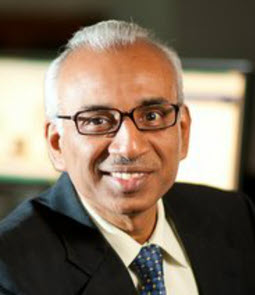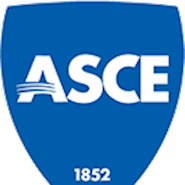
Sankaran Mahadevan, Ph.D., F.EMI, Dist.M.ASCE, the John R. Murray Sr. professor of civil and environmental engineering at Vanderbilt University, has been honored with election by ASCE for its Class of 2025 Distinguished Members. He is recognized for outstanding research and educational contributions to risk, reliability, and uncertainty analysis and management of engineering systems, as well as outstanding professional service and leadership in ASCE, including as president of the Engineering Mechanics Institute.
Mahadevan’s research and teaching interests are in risk and reliability analysis, uncertainty quantification, machine learning, structural health monitoring, and optimization under uncertainty. His research spans computational methods development, experimental investigation, and practical applications. He has applied these methods to a variety of structures, materials, and systems in civil, mechanical, and aerospace engineering.
His research has been extensively funded by the National Science Foundation, NASA, Department of Energy, Department of Defense, Federal Aviation Administration, and National Institute of Standards and Technology as well as by Airbus, General Motors, Chrysler, General Electric, Union Pacific, ABS, Northrop Grumman, Rolls Royce, and Mitsubishi. During the past decade he has been at the forefront of academic research on digital twin methodologies for aircraft, rotorcraft, ship structures, and additive manufacturing, and for risk analysis of complex systems such as air transportation and the power grid.
Mahadevan is a pioneer in developing adaptive response surface methods for reliability analysis. He has an exceptionally large portfolio of impactful research contributions in many areas of reliability and uncertainty analysis and a diverse range of application domains. His extensive publications on model validation, uncertainty quantification, digital twins, and fatigue reliability have attracted a large worldwide following. His research on probabilistic methods for fatigue life prediction, test and inspection planning, model calibration and validation, and digital twins has been supported and adopted by many industrial organizations.
Mahadevan has shown remarkable leadership and dedication in education. He founded and still directs multidisciplinary doctoral studies and a professional master’s program on risk, reliability, and resilience engineering. He has advised 56 P.D. and 23 master’s students, supervised 25 postdoctoral researchers, and mentored 54 undergraduate researchers. The classes he has taught range from undergraduate courses in structural engineering to interdisciplinary graduate courses in reliability analysis, uncertainty quantification, and machine learning.
He has also extended his educational impact beyond the university by teaching numerous short courses for industry and government organizations.
Mahadevan has served as assistant editor of ASCE journals, as general chair of many prominent conferences, has led professional technical committees in the society, and is a fellow of three professional organizations.



